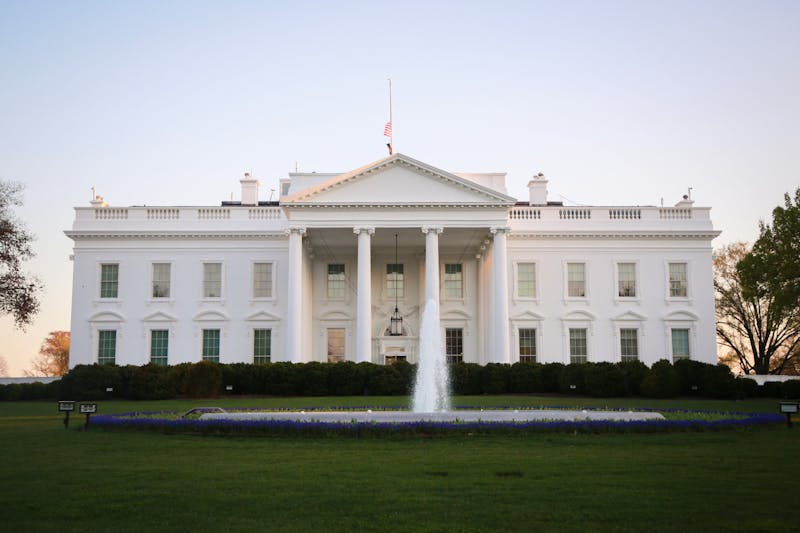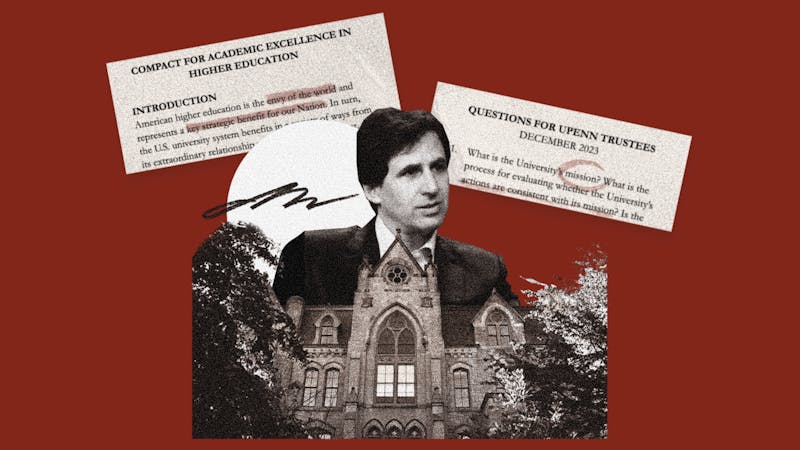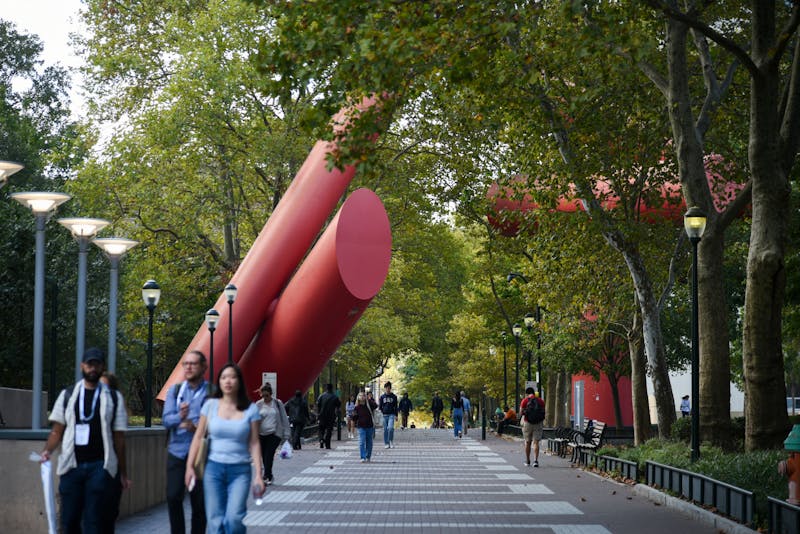
Never mind the Weather Channel. High school students enrolled in the Penn Summer Science Academy had the chance to get up close and personal with the people behind the weather.
Glenn "Hurricane" Schwartz of local television station NBC10, Penn Astronomy Professor Jeffrey Goldader, and PSSA instructor Timothy Kirk teamed up Thursday morning for an informal discussion on the ethics of weather forecasting.
The talk began with a discussion on how variation is treated within weather forecasting. Schwartz admitted that "meteorology is an inexact science," while Goldader explained that, since nature's formula cannot be written out, computer simulations provide the best hope for accurate forecasts.
All the experts said that there is never enough data to provide absolute certainty, which is not always good enough for a demanding public.
Despite the many variables in predicting the weather, the panelists shared some insight as to how they managed to put together their forecasts. Schwartz said that, with only about three minutes of airtime per broadcast, a weatherperson must be confident and concise when forecasting.
Kirk, who led the discussion, then questioned whether there is pressure to report only the more interesting, sensational outcomes. Goldader conceded that many scientists want acknowledgement and press, but nevertheless hold a very high standard of accuracy for what gets publicized.
Still, weather reports often feel exaggerated. Schwartz explained that since being wrong in one direction is embarrassing, and being wrong in the other direction affects people's lives and safety, there was an agreement that it's better to give the audience too much warning, as the consequences of not enough warning can be devastating.
"Never do we make up a forecast just for ratings," Schwartz said.
After the general discussion, the students had the chance to pepper the panel with questions. One student asked whether or not this constant overwarning leads to a "boy who cried wolf" scenario between forecasters and their audience.
The panel replied that weather forecasting bureaus do indeed worry about maintaining credibility, requiring that the forecast only be presented if the weather person truly believes his or her prediction, and has amassed sufficient data to back that up.
Throughout the discussion, the PSSA students remained in quiet, rapt attention, which, along with their inquisitiveness, was noticed by the experts.
"[It was] nice to talk about issues other than my background -- to get challenged intellectually," Schwartz said.
The students, whose program ends on July 27, found the program valuable as well.
"I thought it was interesting," one student said. "I'd like to do something like this again."
And that's the plan, if all goes well, as Kirk hopes to make such roundtable discussions an annual event for PSSA students.
The Daily Pennsylvanian is an independent, student-run newspaper. Please consider making a donation to support the coverage that shapes the University. Your generosity ensures a future of strong journalism at Penn.
DonatePlease note All comments are eligible for publication in The Daily Pennsylvanian.







